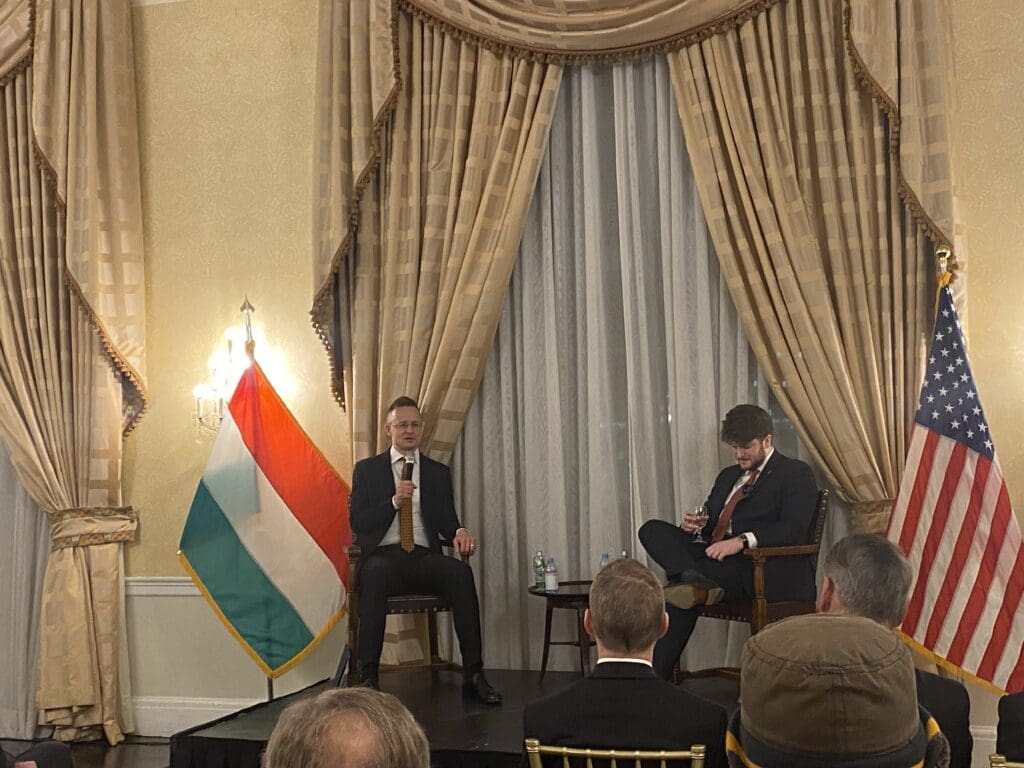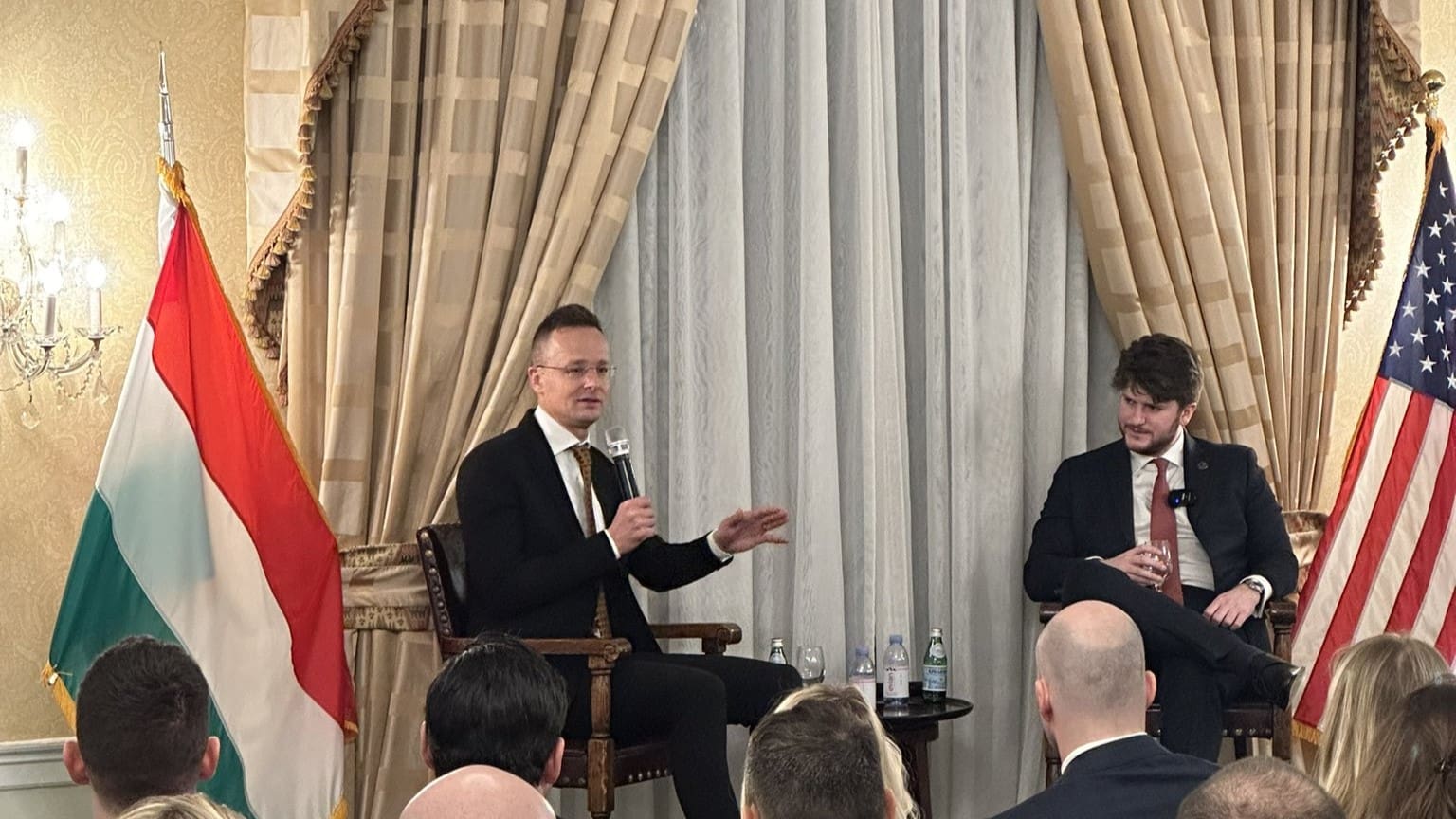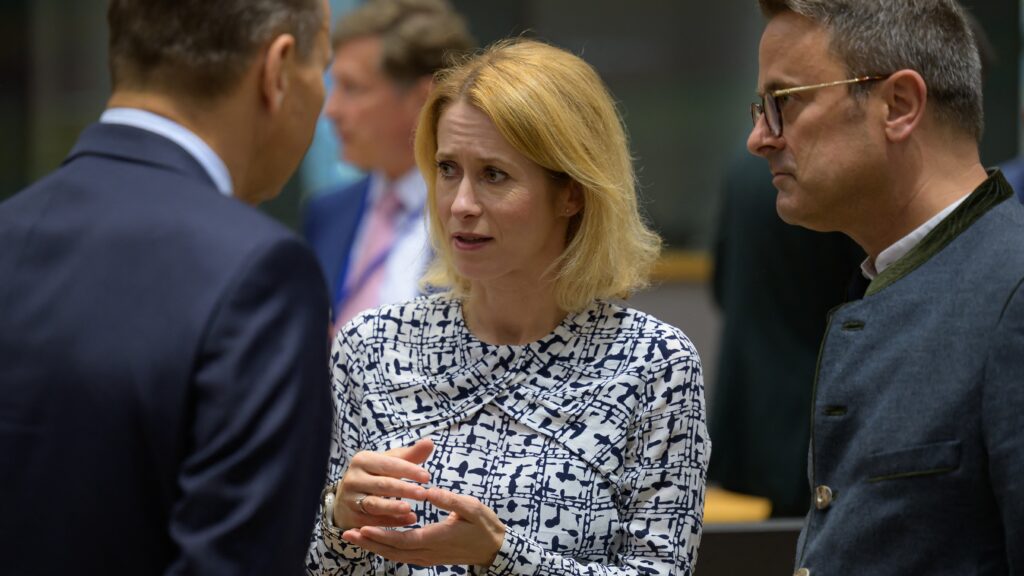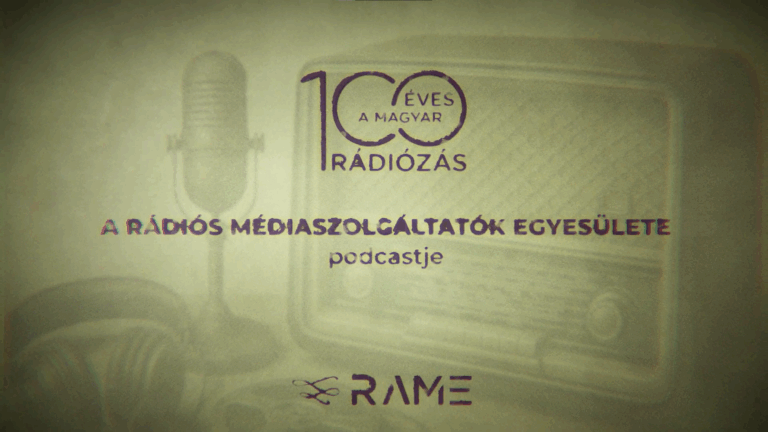Hungarian Minister of Foreign Affairs and Trade Péter Szijjártó was the guest speaker at the latest event of the International Speaker Series organized by the New York Young Republican Club (NYYRC) on 7 February. The event was attended by the Hungarian Ambassador to the US Szabolcs Takács and Consul General of the New York Consulate of Hungary István Pásztor, and hosted by president of the NYYRC Gavin Wax. After addressing the challenges Europe and the European Union have been currently facing, that is, war, migration, and shrinking competitiveness, the minister answered several questions from the audience.
After expressing his appreciation for the invitation, Szijjártó recalled his personal experience regarding the half year he spent in Ohio as a teenager, especially how impressed he was about the Americans’ patriotism and respect of their national symbols, traditions, and history. These emotions must be respected and followed, he added.
According to the minister, the challenges Europe and the European Union (EU) are facing nowadays are actually ‘a package of challenges consisting of three major issues’: the war in Ukraine, the major influx of migrants that exploded in 2015, and the continuously shrinking competitiveness of the EU’s economy. He considers the liberal mainstream to be the major cause of Europe’s failure to address these challenges, as it ‘rules basically all spheres of life in Europe, tries to achieve an absolute hegemony, and makes it absolutely impossible to have rational, respect-based debates or discussions about any major issue’. As the speaker noted jokingly, if someone mentions in Europe that it might be better to concentrate on how to make peace in Ukraine instead of supplying weapons, that person is considered ‘either a spy of the Russians, a personal friend of Putin, or a Russian propagandist’. If one says that the only way foreigners can enter a country is by having valid documents that they must present at a border checkpoint, they are very close to being called a fascist. As Szijjártó summarized: ‘This is what I face at least once a month when meeting the foreign ministers of the EU and this is why Europe has governed itself to a very deep crisis simply because it was not able to manage these three major challenges’.
After his introduction, Szijjártó explained how the Hungarian government views its own so-called ‘illiberal’ democracy: ‘The liberal mainstream considers themselves as the only progressive and democratic ideology in politics. And if you are not ready to align with them and to represent the liberal approach or values, then you are anti-democratic, dictatorial, autocrat, and, again, a personal friend of Putin.’ This is why, he continued, the liberal mainstream is the most intolerant ideology that has been dominating public life in recent decades: it does not tolerate any difference in opinion and does not respect the rights of the non-liberals to represent their own views and decisions. ‘When you represent a non-liberal opinion in a debate in Europe, you are considered to be a non-European. They do not consider you as a democratic person, government or country if you are not liberal. In our understanding, however, democracy may not only be liberal. Democracy is democracy and it does not need any kind of markers. However, when we say we are an illiberal democracy, we mean that we are a democracy governed by a non-liberal party.’
The minister argued that Hungary believes a political system can also be democratic with a conservative, Christian democratic, and patriotic government; however, in Europe, these parties and governments are considered to be populist, because the liberal mainstream rules the media and the network of civic organizations. He emphasized that most governments in European countries are either having a very small margin, are being composed of many different coalition parties, or are even in a minority in their parliament, so it is very easy for the liberal mainstream to put pressure on these governments or parties. ‘This is what I feel whenever I meet the foreign ministers of the EU: I am one of the very few, not to say the only one who can say what he thinks. I do not have to worry about the danger of an NGO killing my government the next day because we have a stable and credible political system. And neither the media nor the NGOs can interfere into the operation of the democratic political system. But where the governments are fragile, a bad report or cover story or a well-orchestrated action of an NGO can change them.’ He said that the Hungarian media landscape is ‘pretty hard and colourful as half of the media is supportive of the government, the other half hates it’. Yet, based on the current European standards, it is a dictatorship because the liberals do not have a 99.9% control of the national media, as is the general situation in Europe now, he explained, adding:
the conservative media is immediately stigmatized as ‘slave media’
being sponsored by the government. This is why we consider the liberal mainstream very intolerant.

Regarding the war in Ukraine, Szijjártó stated: the European strategy ‘has totally failed, because Europe feeds Ukraine with weapons, money, and information in order for Ukraine to win the war and for Russia to lose it, and that would result in a political earthquake in Russia’. However, two years passed and none of these happened; moreover, the sanctions implemented by the EU are more harmful to Europe itself than to Russia. Furthermore, every day the war is extended, more people die and more destruction takes place, concluded Mr. Szijjártó. ‘Hungary is the only country in NATO which does not deliver weapons to Ukraine, because we know that the more weapons are delivered, the longer the war will go on, more people will die, and more destruction will take place’. He pointed out that that there is a Hungarian community in Ukraine of about 150,000 people, many of whom have been mobilized for the Ukrainian army as Ukrainian citizens, most of them deployed to the front lines and many of them dying. Hence, Hungary is ‘a nation whose members are dying in this war, and therefore it looks at this war from a totally different angle than others’. As noted by the minister, the outcome of the EU’s sanctions implemented on Russia is that the Russian oil is being bought by the Chinese for a much cheaper price than it used to be sold to Europe, and Europe is buying much more expensive oil than before from other sources. He added that Hungary is now pushed to implement sanctions on the Russian nuclear industry, which would be a tragedy to Hungary, considering the weight Russians have in the Hungarian nuclear energy sector. The sanctions simply do not work, as they are hitting the European economy itself and have no major impact on the Russian economy, he added.
‘We stick to our right to make a decision about whom we allow to enter the country, and whom we are ready to live together with. And there is no way that any external force, be it Brussels or Washington, can tell us who to let in’, he started, remembering that when the migration crisis hit Europe, Hungary built a fence at its southern border and deployed the army, the border patrol, and the police to defend it. Thus, Hungary stopped 275,000 illegal migrants in 2022 alone and almost 200,000 in 2023. He asked: ‘Imagine what would have happened if we let them come in, and how many more would have come, knowing that they may come in?’ He warned that in the countries following different paths the outcome is parallel societies, anti-Israel protests, and rising modern age antisemitism. As far as the economy is concerned, Szihhártó recalled that the EU used to be number two in the world based on its share of global GDP, but lately became number three as China has taken over. As he explained, Hungary is one of the three countries in the world, besides China and Germany, where all three German premium carmakers have factories, and their number one suppliers are Chinese, therefore the managements of these factories ‘always ask to bring their Chinese suppliers to Hungary, and not even to the same city, but to the plot next door, to decrease the supply chain’.
Despite the failure of the EU addressing these major challenges, Hungary has not only survived the recent years, but it proved to be really successful, due to the smart decisions of Hungarian people and the stability of the political system in Hungary, concluded Mr. Szijjártó. He pointed out that the current government won all of the last four elections in 2010, 2014, 2018, and 2022 with a two-thirds majority in the parliament. This means that Hungary is a democracy, even if the European Parliament considers and treats Prime Minister Viktor Orbán as a dictator. He explained that
‘in Europe a strong leadership and a strong political system is supposed to be a threat, a danger;
probably because of the bad memories of European history of the last century’.
Political stability is the real basis of our success, repeated the minister, and noted that the last election was won by the biggest margin so far, which was unexpected by some of the external forces ‘having invested tens of millions of dollars in Hungary to push the seven opposition parties from the far right to the far left to the same platform’. This massive interference into the Hungarian elections, he added, was coordinated from the US, ‘from the network of George Soros and from organizations not too far from the currently ruling party in Washington DC’. He noted that democracy is about fulfilling the will of the people expressed in the elections, stating that being re-elected three times with a huge margin means that Hungarian people like what the Hungarian government is doing. If, however, this is questioned, it means the maturity of a nation is being questioned. He concluded: ‘We do not accept anyone challenging the democratic nature of our political system and we especially do not accept anyone questioning the smartness and maturity of the Hungarian people’.
Szijjártó summarized the Hungarian government’s strategy and vision as: ‘no war, no migration, no gender’. Hungary wants peace in Ukraine, because ‘it is the only way you save lives and no battlefield development will improve the circumstances for peace’. Hungary made it very clear that it is not willing to allow any illegal migrants in the country. Also, Hungary put forward a very clear definition: family means a father, a mother, and children. Szijjártó added: ‘in order to pour clean water into the glass, we put it in the constitution that the father is a man, and the mother is a woman, in order to make sure that no one understands it wrongly’. He recalled that the Hungarian government has a very clear approach: if once somebody was born as a man (woman), the state will consider him (her) a man (woman) during his (her) entire life. Therefore, the government decided to protect children from the ‘arrogant and aggressive gender propaganda’, making it very clear in the regulations that the sexual education of children is the exclusive right of their parents. Thus, LGBTQ organizations are banned from schools and kindergartens, and all homosexual and transgender propaganda is forbidden for anybody under the age of 18.
The last message of the Hungarian Minister of Foreign Affairs and Trade was that Hungary looks at the US as a true friend and ally, despite the fact that the US ambassador to Hungary ‘is working against that very determinedly’. He emphasized that Hungary will never forget the US had received many of the refugees after the Soviet Union crushed the Hungarian revolution in 1956. He stated: ‘It is more than obvious that the current administration has a very hostile approach towards Hungary and is interested in a weak Europe; this is one of the reasons why they are feeding the war in Ukraine’.
Then Szijjártó added: ‘We want peace and an improved, respectful US–Hungarian relations. And both of these have a name that is President Donald Trump’. The speaker recalled that Hungary has always respected the decision of American people and tried to work together with any elected leadership based on the idea of connectivity, however,
Hungary had the best political relationship with the US during the Trump administration.
He added: the two governments thought about peace, migration, and families in a similar way, but more importantly, the relationship worked because it was based on mutual respect. ‘We hope we can soon return to that. And it is so funny to see the fear in the eyes of my European colleagues when they look at the US polls nowadays’. Szijjártó finished his speech smiling while the audience burst into applause.








